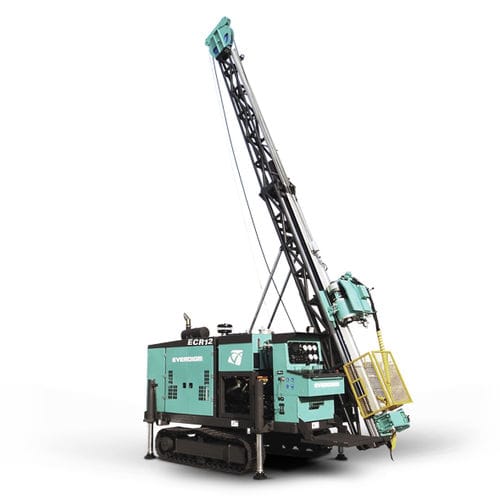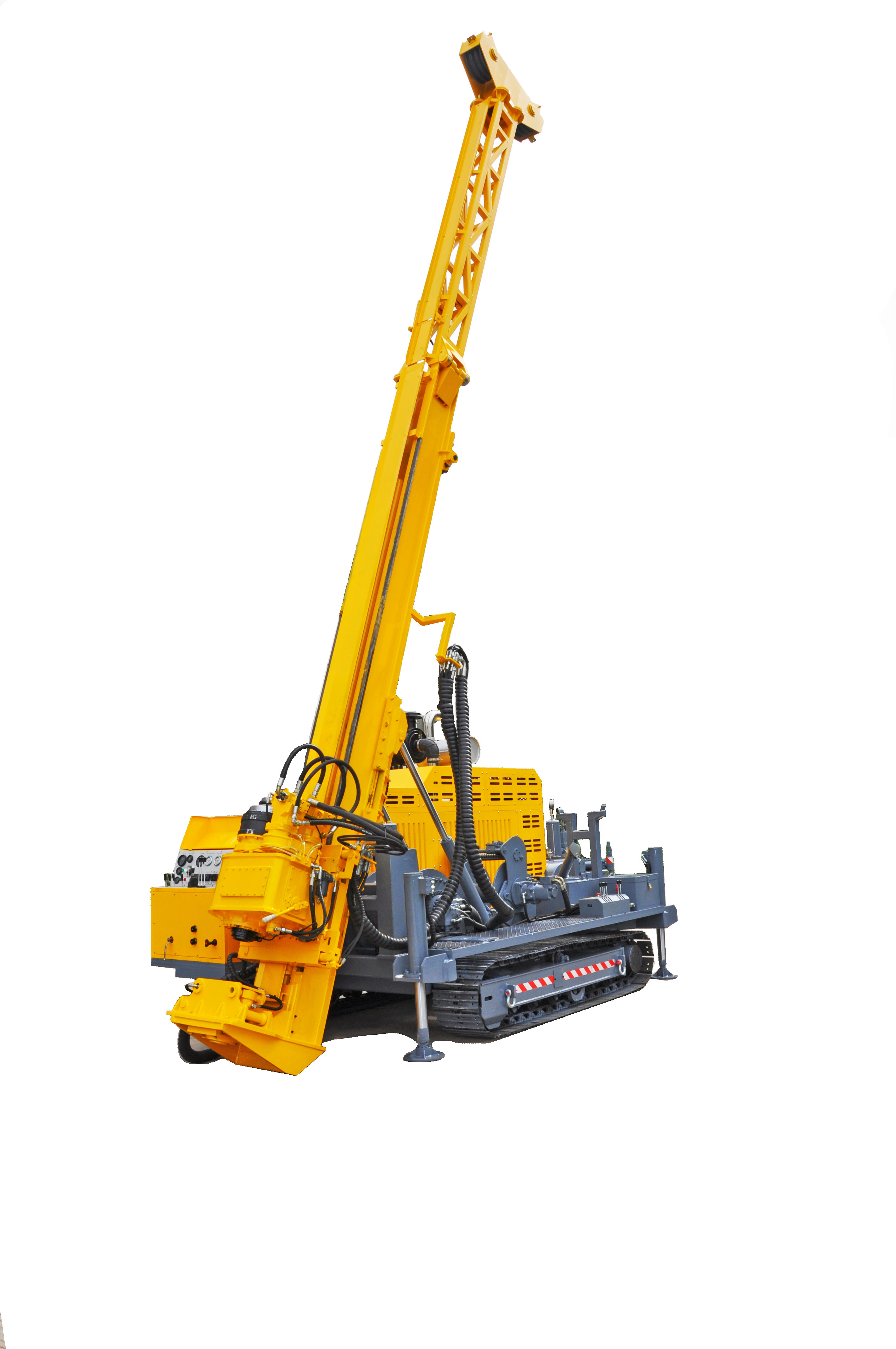Core Exploration Equipment: Secret Realities and Insights on Its Function in Source Exploration
Core boring equipment is essential in resource exploration, allowing the removal of round samples from the Planet's subsurface. This process permits geologists to examine natural resource and comprehend geological developments. Various methods and technologies boost performance and security in exploration operations. Nonetheless, the effectiveness of core exploration can be affected by multiple variables. Recognizing these aspects is crucial for enhancing resource monitoring and reducing ecological influences. What details advancements and considerations shape this significant field?
Introduction of Core Exploration Tools
Core drilling equipment is crucial for getting round samples from the Earth's subsurface, assisting in geological exploration and resource analysis. This customized devices commonly consists of a drill rig, core barrel, and various drill bits designed for different geological conditions. The drill rig gives the necessary power and support, allowing for deep penetration right into the planet. The core barrel records the extracted product, making certain marginal disruption to the example, which is important for precise analysis. Pierce little bits differ in style and material, typically featuring ruby or tungsten carbide to boost toughness and cutting effectiveness.
In addition, core drilling tools might include auxiliary parts such as water pumps for air conditioning and lubrication, in addition to tasting devices for handling and accumulating core samples. With each other, these elements allow geologists and designers to collect important data regarding natural resource, groundwater resources, and various other subsurface features, eventually notifying expedition and removal strategies.
Sorts Of Core Boring Techniques
While various core exploration approaches exist to meet particular geological and task demands, each method offers unique advantages and applications. The most usual techniques consist of diamond core exploration, which makes use of diamond-impregnated bits for reliable cutting via acid rock, making it ideal for mineral expedition. Alternatively, wireline coring permits the fast access of core samples, lessening disruption and making sure high-grade data collection. Reverse blood circulation drilling is liked for its rate and effectiveness in soft formations, as it brings cuttings to the surface area rapidly. In addition, air core drilling is commonly made use of for shallow, unconsolidated materials, supplying a cost-effective solution for initial analyses. Each approach has unique operational demands and is selected based upon aspects such as deepness, rock type, and job goals. Understanding these differed techniques enables geologists and engineers to pick the most appropriate strategy for their specific exploration demands.
Technical Improvements in Core Drilling
Recent technical innovations in core exploration have actually considerably transformed the industry, specifically with the introduction of automated core tasting strategies. These advancements improve efficiency and precision, enabling even more reliable data collection. Additionally, enhanced drill bit layouts have actually boosted penetration prices and durability, further maximizing core exploration procedures.
Automated Core Experiencing Methods
As advancements in modern technology remain to reshape various sectors, automated core tasting techniques have actually become a game-changer in core boring methods. These advancements improve the sampling procedure by lessening human intervention and boosting precision in data collection. Automated systems utilize innovative robotics and sensing units to guarantee exact core extraction and evaluation, decreasing the danger of contamination and human error. On top of that, real-time data procurement enables prompt evaluation of core samples, promoting quicker decision-making in source exploration. The combination of automation not just enhances performance but likewise considerably enhances security by minimizing the need for employees in harmful settings. Generally, automated core sampling methods are revolutionizing exactly how rock hounds and engineers come close to subsurface evaluation, leading to more educated exploration strategies.
Enhanced Drill Bit Styles
Improved drill bit styles have actually significantly changed core drilling procedures by including advanced materials and ingenious geometries that maximize efficiency and durability. Recent improvements include making use of polycrystalline diamond compact (PDC) little bits, which use remarkable hardness and wear resistance, allowing much deeper infiltration prices and prolonged life. Furthermore, enhanced cooling and lubrication systems have been integrated to reduce friction and heat generation, thus improving effectiveness. Designs featuring specialized reducing frameworks allow for better rock fragmentation and core recovery, reducing the danger of damage to useful samples. The incorporation of sensors and wise technologies even more aids in real-time surveillance and efficiency assessment, ensuring that drilling procedures are not only efficient however likewise cost-efficient, noting a substantial development in core drilling methods.
Applications of Core Drilling in Resource Expedition
Core exploration plays an essential function in source exploration by promoting mineral resource analysis, which is essential for determining and evaluating important deposits. In addition, it enhances geological research study by giving important data that educates various clinical researches. In have a peek at this website addition, core drilling contributes in ecological impact studies, allowing for a much better understanding of the potential effects of resource extraction on environments.
Mineral Source Analysis
Just how can core boring methods substantially add to mineral source analysis? Core exploration plays an essential function in accurately establishing the high quality and amount of mineral deposits. By drawing out cylindrical samples from various midsts, geologists acquire a direct representation of subsurface products. This permits precise evaluation of mineral framework, structure, and quality, which is essential for educated decision-making in source growth. Additionally, core exploration facilitates the identification of geological features and abnormalities, boosting understanding of mineralization procedures. The data gotten through this technique is important for source evaluation and plays a considerable function in financial usefulness researches. Eventually, core drilling is an important tool for progressing mineral source analyses in expedition jobs.
Geological Study Development
Progressing geological research, core exploration strategies offer important insights into mineral sources and subsurface developments. By removing round samples from the Planet's crust, rock hounds can examine the physical, chemical, and mineralogical buildings of numerous strata. This data is necessary for recognizing geological history, determining possible resource down payments, and examining the viability of extraction operations. Core examples expose information regarding rock types, architectural geology, and fluid motion, which are critical in creating exact geological versions. Additionally, innovations in core boring modern technology, such as enhanced boring fluids and little bit styles, improve the precision and performance of sample collection. Generally, the combination of core drilling right into geological research considerably adds to notified decision-making in resource expedition and monitoring.
Ecological Effect Research Studies
While reviewing the ecological impact of source exploration, core drilling functions as an essential device for accumulating information that informs lasting practices (Core Drilling Equipment). This strategy allows scientists to acquire subsurface examples, enabling them to examine dirt and rock structures, groundwater top quality, and prospective contamination. By examining these examples, ecological researchers can identify the environmental repercussions of resource extraction tasks. Additionally, core boring help in the development of reduction techniques to reduce damages to ecological communities. The data gathered likewise supports regulatory conformity, guaranteeing that expedition tasks stick to environmental standards. Ultimately, core drilling not just enhances understanding of geological formations but likewise promotes liable source monitoring, balancing exploration needs with environmental security
Key Factors Influencing Core Exploration Performance
Core exploration performance is substantially affected by numerous key variables that establish the success of boring operations. One crucial variable is the selection of drilling devices, which influences penetration prices and core recovery. The layout and condition of drill little bits play an important function, as they have to be fit to the geological problems ran into. Furthermore, the drilling strategy employed, such as rotating or ruby exploration, can significantly affect performance.
Another essential factor is the experience of the drilling crew. Knowledgeable operators can enhance boring specifications, lowering downtime and enhancing performance. The geological qualities of the site, including rock firmness and fracturing, additionally influence drilling rate and efficiency. Ultimately, correct preparation and project administration are essential in working with resources and minimizing try this site hold-ups. Collectively, these elements add to the general efficiency of core boring procedures, ultimately affecting resource exploration end results.
Environmental Factors To Consider in Core Boring Operations
Ecological factors to consider play an essential duty in core boring procedures, as they directly influence communities and local neighborhoods. These procedures can interfere with habitats, bring about biodiversity loss and soil erosion. Making use of hefty equipment might discharge greenhouse gases and sound pollution, impacting both wildlife and human populations nearby.
To reduce these effects, drivers have to abide by strict environmental regulations and embrace sustainable methods. This includes using environmentally friendly exploration liquids, managing waste efficiently, and restoring sites post-drilling. Furthermore, involving with local areas can promote transparency and assistance, making certain that exploration activities do not compromise public health and wellness or land use.

Regularly Asked Questions
What Precaution Are Required When Operating Core Exploration Devices?

How Is Core Sample Top Quality Assessed After Exploration?
Core example high quality is assessed via visual assessment, dimension of physical buildings, and research laboratory analysis. Elements like recovery rate, core integrity, and contamination degrees are reviewed to assure accurate representation of subsurface problems.
What Are the Prices Connected With Core Boring Projects?
Expenses connected with core exploration tasks include equipment leasing, labor, transportation, website prep work, and sampling. In addition, expenditures for environmental licenses, website remediation, and analysis add to the overall economic investment needed for successful exploration operations.
How Does Weather Affect Core Exploration Operations?
Weather significantly influences core exploration procedures. Rain, snow, or severe temperatures can hinder progress, influence equipment efficiency, and create security hazards - Core Drilling Equipment. Appropriate planning and scheduling are important to mitigate weather-related interruptions in drilling activities
What Accreditations Are Needed for Core Exploration Professionals?
Core drilling specialists typically call for certifications such as the National Institute for Qualification in Engineering Technologies (NICET) and OSHA security training. Added state-specific licenses might also be required to establish compliance with neighborhood guidelines and security requirements.
